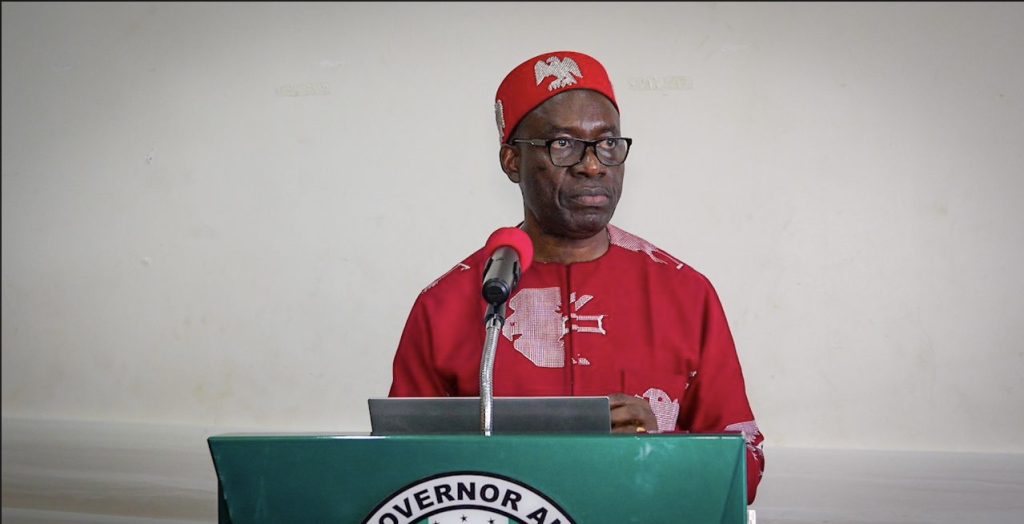The Nigeria Association of Pensioners, Anambra State Council, recently expressed urgent concerns regarding the outdated pension rates affecting retired public servants in the state. Their appeal was particularly prompted by the distressing case of Mrs. Fanny Ngozi Uchefuna, a retired senior matron from the State Education Commission, who is reportedly receiving a mere N330 as her monthly pension. Uchefuna, who retired on October 21, 1994, from Njikoka Local Government, exemplifies the dire circumstances many retirees face due to the stagnation in pension rates. In a bid to address this long-standing issue, the union formally urged Governor Chukwuma Soludo to initiate a thorough review and harmonization of pension rates, a request bolstered by a circular from the National Salaries, Incomes and Wages Commission advising the state to adopt updated pension rates.
In addition to the Nigeria Association of Pensioners, retired directors of the Anambra State Public Service have also joined the call for a comprehensive pension review and harmonization, emphasizing the neglect of pension enhancements since 2003. These retirees acknowledged the gesture made by Governor Soludo to provide a N10,000 interim allowance to retirees while addressing pension harmonization. However, they expressed a pressing need for more timely and decisive action to address the chronic inadequacies of pension provision in the state. The retired directors articulated that pension harmonization should occur every five years or coincide with salary reviews for active government employees, as mandated by the 1999 Constitution.
The disparity in pension rates has become an alarming issue, particularly given the current economic climate in Nigeria, characterized by rising inflation and increased living costs. The situation for retirees like Mrs. Uchefuna, whose pension is significantly below subsistence standards, underscores the broader problem of inadequate financial support for those who have dedicated their lives to public service. The plight of pensioners, especially in Anambra State, raises pressing questions about the state’s commitment to fulfilling its obligations towards retired public servants and adhering to constitutional mandates concerning pension policies.
The communication from the retired directors of the Anambra State Public Service, signed by chairperson Fidelis Ezeike and secretary Azuka Okeke, highlighted the importance of rectifying the pension challenges faced by retirees. They noted that while the interim N10,000 assistance was a welcome gesture, it does not adequately address the long-standing issues of outdated pension rates. Their acknowledgment of the government’s existing efforts, coupled with a staunch request for a systematic pension review, underscores a collective desire for more sustainable and equitable financial support for retirees.
The voice of the Nigeria Association of Pensioners and the retired directors reflects a growing awareness and urgency surrounding the need for pension reform in Nigeria, specifically in Anambra State. They pointed out the adverse impacts of inflation on the fixed incomes of retirees, stressing that proper pension harmonization is not merely a bureaucratic requirement but a vital necessity for ensuring the dignity and well-being of former public servants. As such, the call to action for Governor Soludo to expedite pension reforms resonates not only with the retirees but also with the broader community concerned about social justice and equitable treatment of all citizens.
In conclusion, the situation facing pensioners in Anambra State highlights the critical need for reform in how pensions are administered and evaluated in Nigeria. The collective appeals from the Nigeria Association of Pensioners and retired directors serve as a clarion call for the government to take immediate and decisive action to rectify outdated pension rates and ensure compliance with constitutional mandates. As the Governor contemplates possible reforms, the perspectives of retirees can provide valuable insights, and their willingness to collaborate with the government to improve the system demonstrates their ongoing commitment to public service and community welfare. Addressing these challenges will not only enhance the lives of retirees but also restore faith in the government’s commitment to caring for its citizens.














